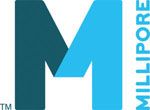Millipore acquires Guava
Millipore has announced that it will be acquiring Guava Technologies. The agreement, which is expected to close in the next two weeks, will see Millipore pay around $22.6 million. This follows the distribution and co-development partnership that the two companies announced in March 2008.


Millipore has announced that it will be acquiring Guava Technologies. The agreement, which is expected to close in the next two weeks, will see Millipore pay around $22.6 million. This follows the distribution and co-development partnership that the two companies announced in March 2008.
This deal is expected to allow the two companies to integrate their instrumentation, reagent kits, validated protocols and technical support which, the companies claim, will bring the advantages of flow cytometry to the bench tops of cell biologists.
“Our vision is to make flow cytometry less expensive, easier to use, and more accessible for all research scientists,” said Jonathan DiVincenzo, president of Millipore’s bioscience division. “Additionally, by developing kits that are optimized for key research areas such as stem cell research, cancer biology, cell health, and biomarker discovery, scientists will no longer need to source reagents and develop their own assays.”
Information about Guava Technologies is available on the website: www.guavatechnologies.com
More about Millipore can be found at: www.millipore.com
LCGC’s Year in Review: Highlights in Liquid Chromatography
December 20th 2024This collection of technical articles, interviews, and news pieces delves into the latest innovations in LC methods, including advance in high performance liquid chromatography (HPLC), ultrahigh-pressure liquid chromatography (UHPLC), liquid chromatography–mass spectrometry (LC–MS), and multidimensional LC.
Using LC-MS/MS to Measure Testosterone in Dried Blood Spots
December 19th 2024Testosterone measurements are typically performed using serum or plasma, but this presents several logistical challenges, especially for sample collection, storage, and transport. In a recently published article, Yehudah Gruenstein of the University of Miami explored key insights gained from dried blood spot assay validation for testosterone measurement.